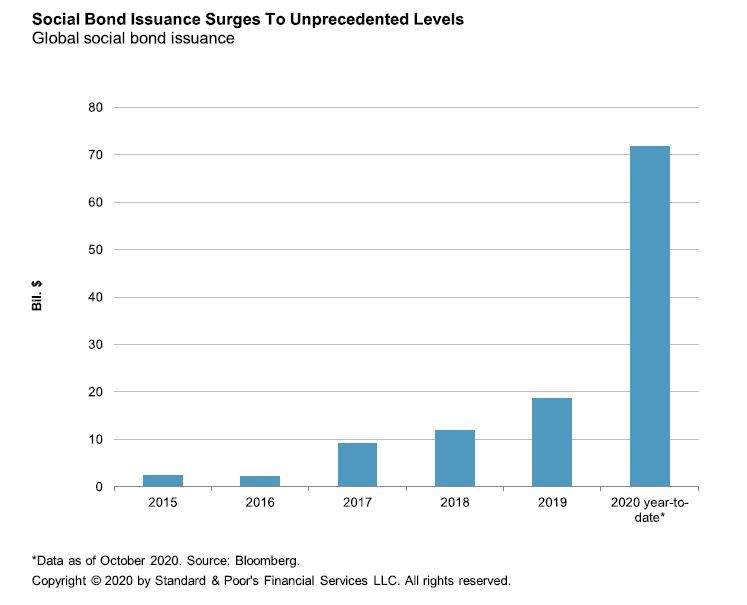As Covid-19 proves to be the ‘great divider’, governments, supranationals and corporations have increased issuance of social bonds, which is projected to reach $100bn this year, as reported by ESG Clarity in the UK.
As of October, social bond issuance stood at $71.9bn, nearly four times greater than in 2019, according to an S&P Global Ratings report.
“We project that social bond issuance could approach $100bn this year, while total sustainable debt could hit a record $500bn up from $341bn in 2019,” it said.

Historically, interest in social bonds from investors, governments and companies has been limited, with issuances comprising just 5% of all sustainable bond issuances last year. But as Covid-19 threatens to widen social divides, interest has increased.
Covid-19 has widened inequality in many areas. Poor health is linked with social inequality, the report noted, due to things such as inaccessible health care: “The poorest populations have a much greater chance of dying from Covid-19 than the richest.”
The pandemic has also widened housing inequality, with lockdown measures leading to overcrowding and therefore an increased risk of the virus spreading, and exacerbating safety issues, such as limiting options for survivors of domestic abuse. The lockdown of schools has widened the education gap, with many students unable to access virtual learning.
Lockdown measures have also widened income inequality, hitting lower-wage workers the hardest. “The World Bank estimates that COVID-19 could push upwards to 100 million people into extreme poverty in 2020,” the study said. “This represents the first increase in global extreme poverty since 1998, effectively reversing all progress made since 2017.”
On 20 October, the EU issued a €17bn social bond, the second largest ever issued, proceeds of the which fund the union’s Support to mitigate Unemployment Risks in an Emergency job support program. The issuance was more than 13 times oversubscribed by investors, the EU said, showing the demand for socially minded investments.
The report predicts this rise in demand is likely to be met with an increase in supply across the spectrum, potentially becoming the fastest-growing segment of the sustainable debt market.





